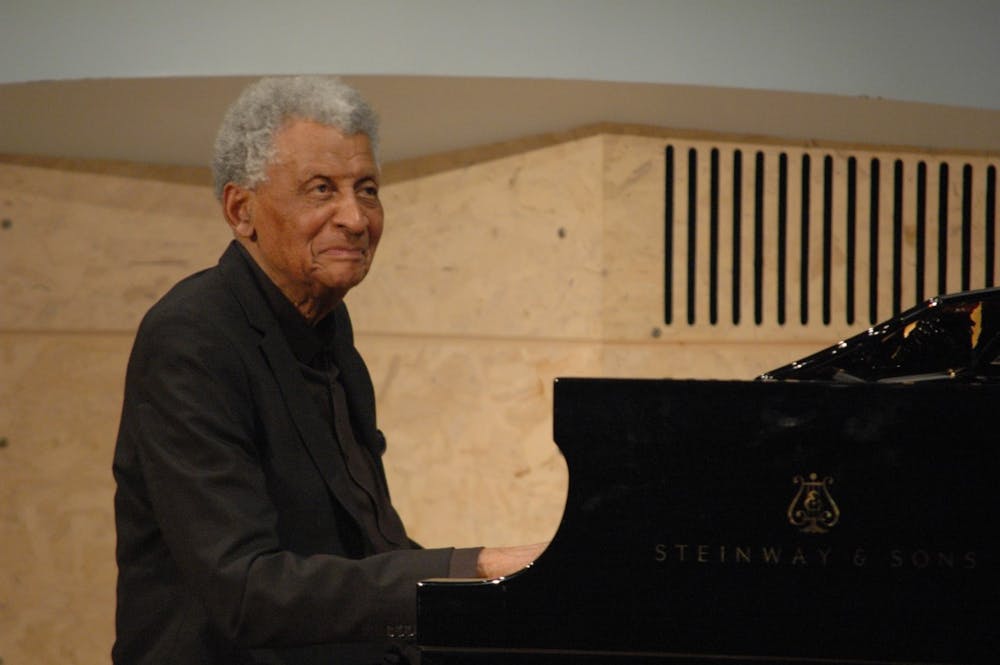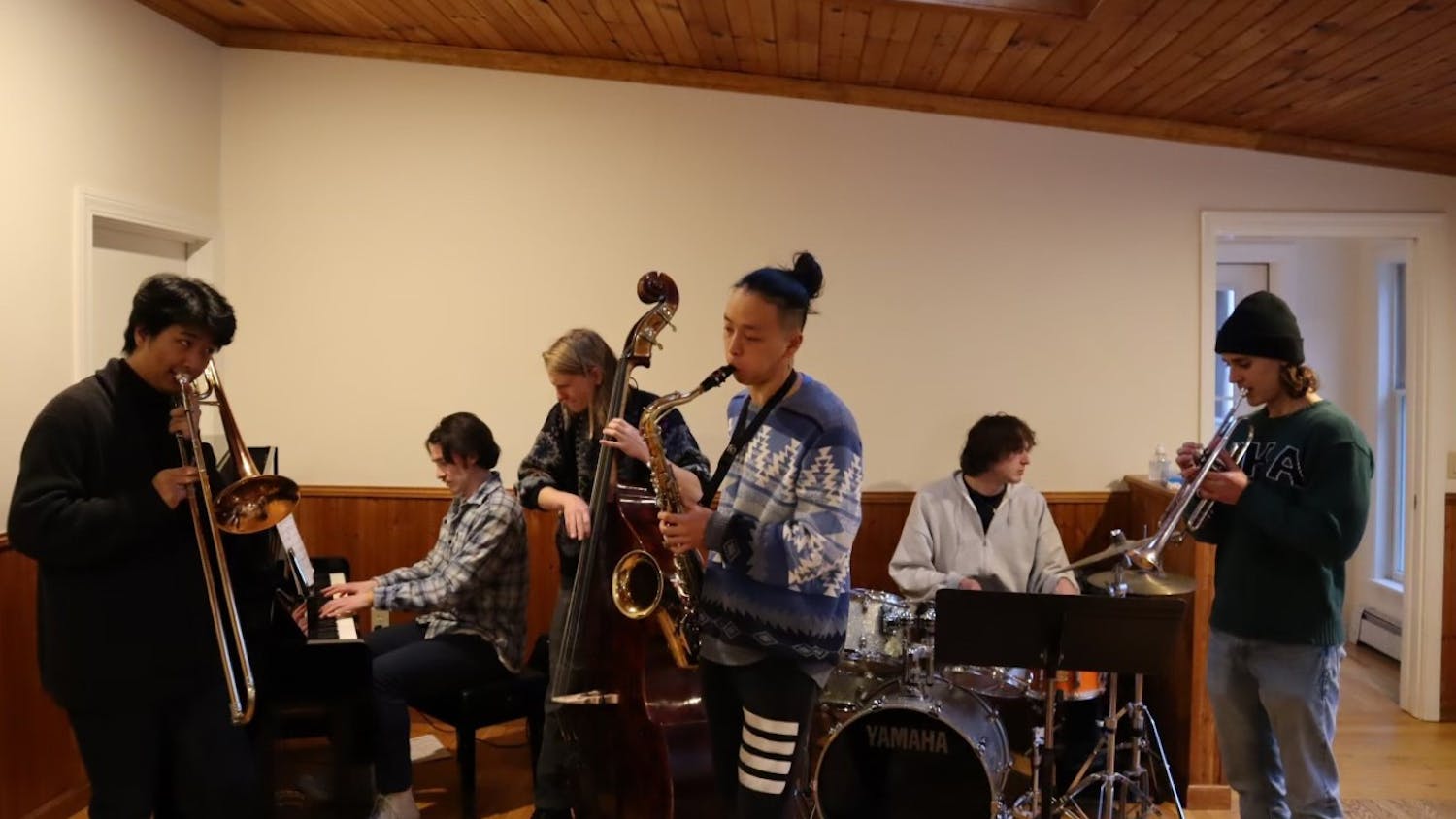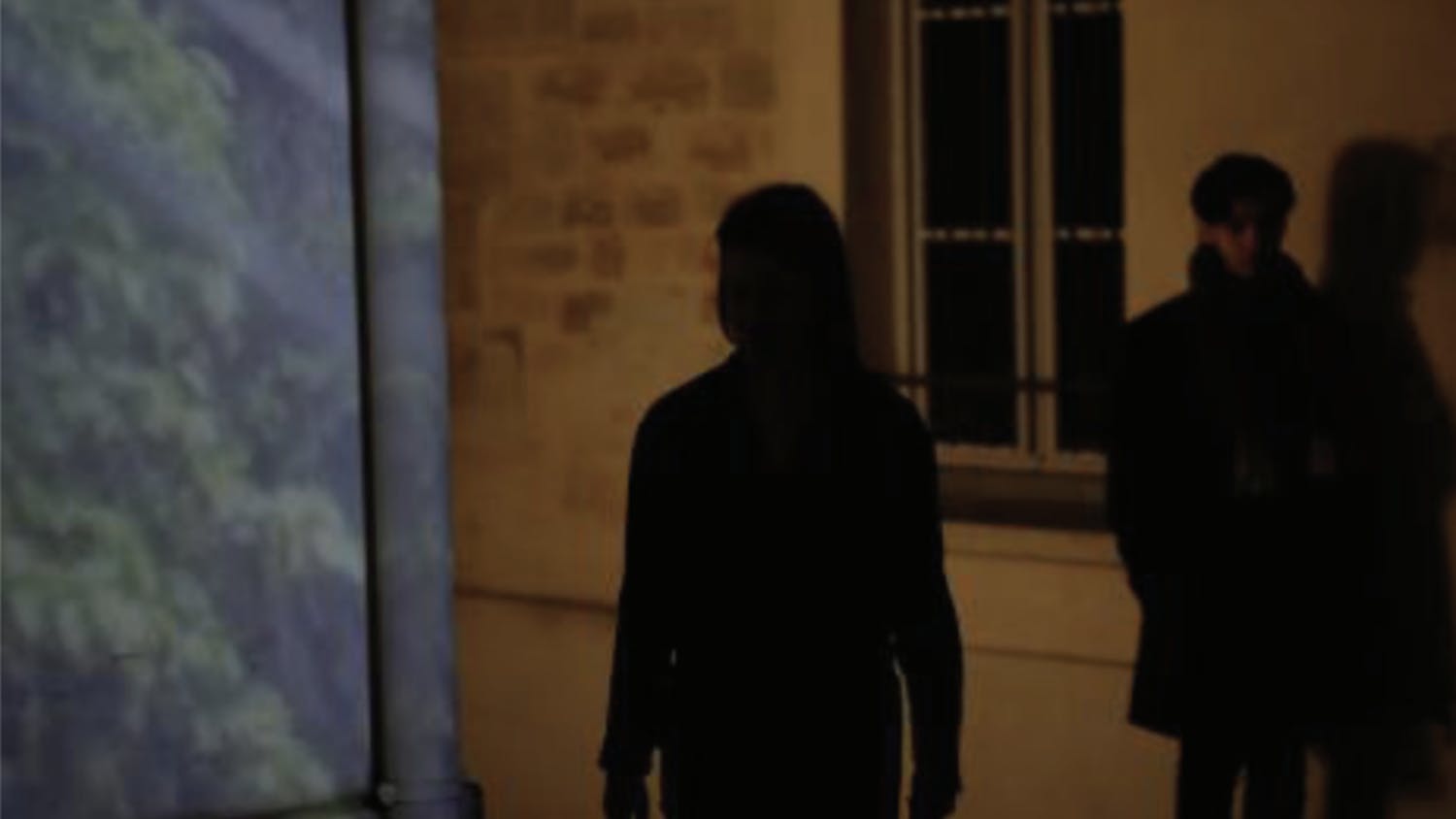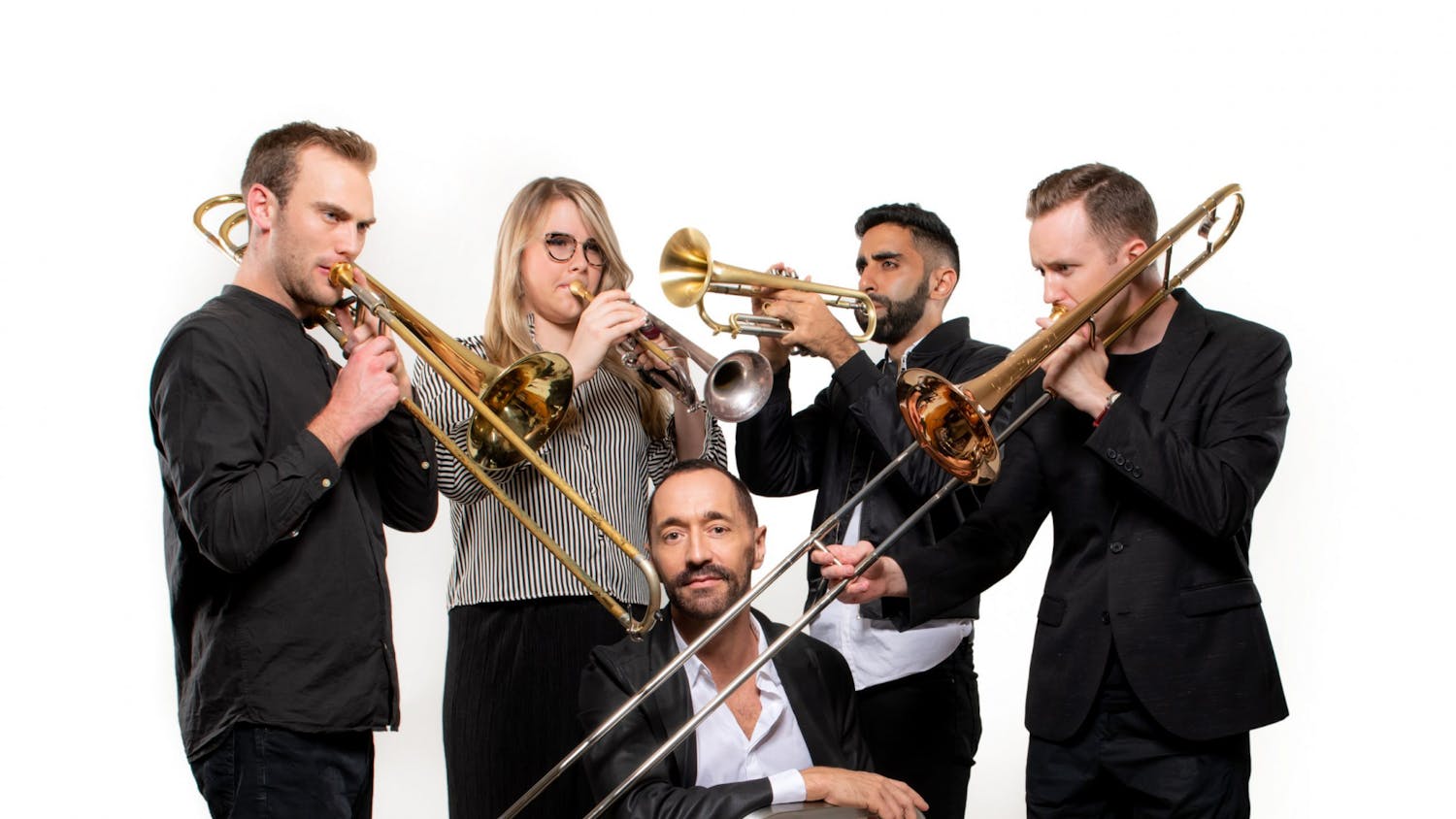To cap off the 103rd season of the Middlebury Performing Arts Series , the college hosted jazz pianist Abdullah Ibrahim and his group Ekaya this past week, who performed in Robison Hall on Saturday, April 29.
This was Ibrahim’s third time at Middlebury, having previously performed in the Chapel in October 1987 and September 1992. The Campus reviewed his performances both years, and Director of the Performing Arts Series Allison Coyne Carroll quoted the articles in her introduction, reading that The Campus had “enjoyed and appreciated Ibrahim’s virtuosity” and that “Ibrahim captivated the sold-out crowd.”
“Having an NEA Jazz Master join us for 3 days was delightful,” Director of Jazz Activities Dick Forman said. “He gave us a jazz history course based on his own experiences.”
Ibrahim (formerly known as Dollar Brand) was born in Cape Town, South Africa in 1934. From an early age, Ibrahim tuned into the various sounds of his early youth, including Christian hymns, African-American gospel tunes and Indian ragas.
The concert program described the Cape Town of Ibrahim’s childhood as “a melting-pot of cultural influences, [where] the young [Ibrahim] was exposed to American jazz, township jive, CapeMalay music and classical music.” As a result, his music encompasses all of these styles.
As a young man, much of Ibrahim’s musical output was a response to South Africa’s struggle with Apartheid. In the late 1950s, Ibrahim performed and recorded with a group called the Jazz Epistles, which included legendary trumpeter Hugh Masekela. After the Sharpeville Massacre in March 1960, activist musicians and artists suffered from harsher laws against creative expression. In order to preserve his artistic message, Ibrahim moved to Europe in 1962, where he remained an outspoken force against apartheid.
Ibrahim visited several of Middlebury’s musical ensembles this week, including the Afropop band, the jazz workshop and Collaborative Improvisation course taught by Assistant Professor of Music Matthew Evan Taylor.
Ibrahim’s demeanor is gentle and meditative, which is precisely what captivated students this time around. Prior Ibrahim’s “master classes,” dance department accompanist (and longtime friend of Ibrahim’s) Deborah Felmeth advised that “students will have to lean in to hear and to follow, for [Ibrahim] is a true griot who will offer into the room ideas, thoughts, stories that they’ll spend years pondering.”
One of the first things Ibrahim told us was that “music is a matter of life and death.” Beyond that, he stated that music is an access point to “parallel universes,” which we cannot access in our human endeavors. To this wisdom, Ibrahim shared stories from his interactions with his elders. He recalled having a session with one elder when suddenly a snake appeared, to whom the elder joked, “I thought I told you not to come back here.” The elder then started to breathe rhythmically and Ibrahim followed, gradually feeling the sensation of levitation. Ibrahim replicated this breathing during his master classes.
“He is a musical master,” Music Department Chair Damascus Kafumbe said. “He is respectful, loving, kind and brings out the best in his musical disciples.”
Both Ibrahim’s person and music exude a deep spirituality, one for which any verbal language is an insufficient translator. There is a magnetism to his being: the deliberate pace of his speech, the steadiness of his eyes and the earnestness of his hearty laugh.
To many of our surprises, Ibrahim stated that “it’s not about the music.” He then gave us this simple advice: “Invest in loss.” The room was stupefied while Ibrahim smiled.
On stage, Ibrahim and Ekaya — which consists of Cleave Guyton (alto saxophone/flute/piccolo/clarinet), Lance Bryant (tenor saxophone), Joshua Lee (baritone saxophone), Noah Jackson (cello/bass) and Will Terrill (drums) — played many of Ibrahim’s original compositions, including songs from his most recent LPs, “Dream Time” (2019) and “Solotude” (2021).
The sold-out crowd got to their feet when Ibrahim entered, bowing to us from the piano with his hands together. He then took us through an introductory suite on solo piano, using his composition “Blue Bolero” as a thematic reprise.
As Ekaya joined the stage, Ibrahim took on more of a conductor’s role, providing piano parts only when punctuating a musical phrase or transitioning between songs. During the show, band members would look at Ibrahim, who, attentive at the piano bench, would give directions with his eyes — or an occasional grunt.
While Ibrahim’s recent compositions are reflective and explorative, the performance featured pieces that were harmonically dissonant and melodically angular, reflecting the styles of Thelonious Monk or Eric Dolphy (Ibrahim introduced one song by referencing Monk’s tune “Light Blue”). The group also performed one of Ibrahim’s hallmark compositions, “Water from an Ancient Well.”
After the performance, Ibrahim and Ekaya mixed with audience members downstairs in the Mahaney Arts Center for a brief reception. Still pondering Ibrahim’s confusing wisdom about loss from a few days earlier, Afropop keyboardist Scott Li ’23.5 asked the pianist to clarify what he meant.
“He said that to ‘invest in loss’ means to put effort into doing something and not to expect a benefit or a return,” Li said. “In this way, you cut off your desire and anger.”
Ibrahim’s music reflects a Taoist sagacity. In 2017, New York Times reporter Giovanni Russonello described Ibrahim’s soul. “Mr. Ibrahim… seems to suggest that escape or transcendence could almost be possible,” Russonello writes. “But then there’s the inevitable longing for home, for harmony, for rest. He lives in that balance.”
To Ibrahim, music does not exist without his humanity. Accordingly, investing in loss means to lean into — not avoid — the challenges of being human. In our sessions, Ibrahim taught us that we are capable of great forgiveness.
Two weeks ago, Ibrahim performed at Dartmouth College, and during the post-reception a girl came up to him wearing a shirt that said “Pretoria,” the city which is the seat of South Africa’s executive branch. To Ibrahim, Pretoria signifies the trauma of Apartheid, a time when the government sent its police force (ordered from Pretoria) to kill innocent people. But Ibrahim noticed tears in the girl's eyes, and the two of them shared a tender moment.
At 88 years old, Abdullah Ibrahim is still collecting parables for us — stories for how we can overcome ourselves and connect with the spirits within and beyond us. Middlebury is fortunate to have had his sounds reverberate among us.




